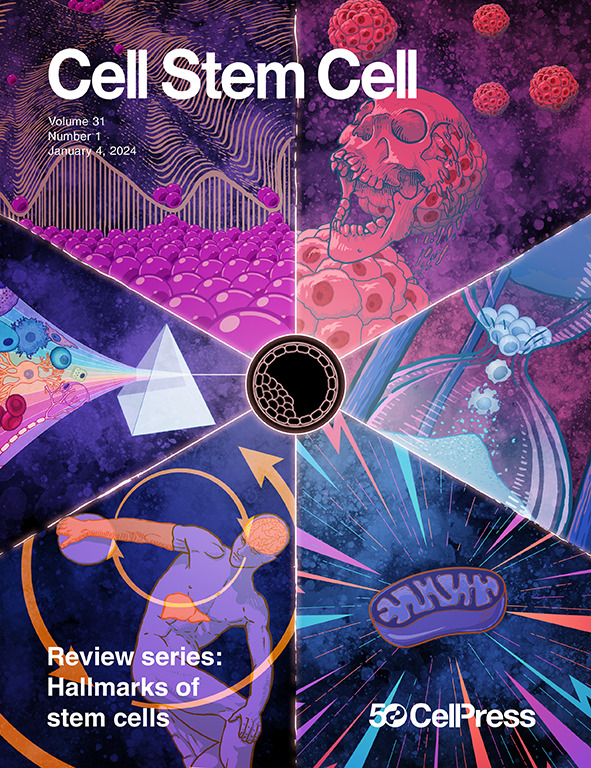大脑重启:增强神经新生和恢复力
IF 19.8
1区 医学
Q1 CELL & TISSUE ENGINEERING
引用次数: 0
摘要
在这一期的Cell Stem Cell中,Shen等人研究了胚胎发生期间Yamanaka因子(YFs)在体内的瞬时表达,并研究了阿尔茨海默病(AD)相关淀粉样变的成年小鼠模型。这些研究表明,短暂诱导YFs可能能够增强神经发生,并提供抗神经变性的弹性。本文章由计算机程序翻译,如有差异,请以英文原文为准。
Brain reboot: Enhancing neurogenesis and resilience
In this issue of Cell Stem Cell, Shen et al. investigate in vivo transient expression of Yamanaka factors (YFs) during embryogenesis and an adult mouse model of Alzheimer’s disease (AD)-associated amyloidosis. These studies demonstrate that transient induction of YFs may be capable of enhancing neurogenesis and offer resilience against neurodegeneration.
求助全文
通过发布文献求助,成功后即可免费获取论文全文。
去求助
来源期刊

Cell stem cell
生物-细胞生物学
CiteScore
37.10
自引率
2.50%
发文量
151
审稿时长
42 days
期刊介绍:
Cell Stem Cell is a comprehensive journal covering the entire spectrum of stem cell biology. It encompasses various topics, including embryonic stem cells, pluripotency, germline stem cells, tissue-specific stem cells, differentiation, epigenetics, genomics, cancer stem cells, stem cell niches, disease models, nuclear transfer technology, bioengineering, drug discovery, in vivo imaging, therapeutic applications, regenerative medicine, clinical insights, research policies, ethical considerations, and technical innovations. The journal welcomes studies from any model system providing insights into stem cell biology, with a focus on human stem cells. It publishes research reports of significant importance, along with review and analysis articles covering diverse aspects of stem cell research.
 求助内容:
求助内容: 应助结果提醒方式:
应助结果提醒方式:


